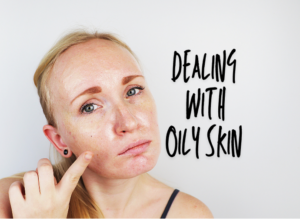Skin hydration is a crucial aspect of maintaining healthy, glowing skin. Adequate hydration plays a significant role in keeping the skin youthful, supple, and resilient. In this blog post, we will explore into why skin hydration is imperative, the benefits it offers, and practical tips to ensure your skin stays well-hydrated. Whether you have oily, dry, or combination skin, understanding the importance of skin hydration is key to achieving a radiant complexion and overall skin health.
The Science of Skin Hydration
Skin Structure and Function
Science has shown that the skin is the largest organ of the human body, serving as a protective barrier against external threats like bacteria, UV radiation, and dehydration. The skin consists of three main layers: the epidermis, dermis, and subcutaneous tissue. The epidermis is the outermost layer, responsible for protecting against moisture loss and external damage. The dermis contains important structures like blood vessels, hair follicles, and sweat glands, while the subcutaneous tissue is primarily made up of fat cells that provide insulation and cushioning.
How Hydration Affects the Skin
Hydration plays a crucial role in maintaining the skin’s health and appearance. When the skin is well-hydrated, it appears plump, smooth, and radiant. Dehydrated skin can look dull, feel tight, and be more prone to issues like fine lines and wrinkles. Proper hydration helps to maintain the skin’s elasticity, promote cell turnover, and support the skin’s natural protective barrier.
Science has proven that when the skin lacks adequate hydration, it can lead to a compromised barrier function, allowing irritants to penetrate more easily and causing inflammation and sensitivity. Hydration is necessary for maintaining the skin’s pH balance, supporting collagen production, and overall skin health.
Factors Influencing Skin Hydration
Clearly, several factors can influence the hydration levels of our skin. These factors can range from environmental conditions to our lifestyle and dietary choices. Understanding these factors is crucial in maintaining healthy and hydrated skin.
Environmental Impacts
Environmental factors such as weather conditions, air pollution, and sun exposure can significantly impact the hydration levels of our skin. Exposure to harsh weather conditions like extreme cold or hot temperatures can strip the skin of its natural oils, leading to dryness and dehydration. Air pollution can also affect the skin’s barrier function, making it more prone to water loss.
Lifestyle and Dietary Considerations
To maintain optimal skin hydration, it is important to consider lifestyle factors such as smoking, alcohol consumption, and stress levels. Smoking and alcohol can dehydrate the skin and impair its ability to retain moisture. Additionally, high stress levels can lead to hormonal imbalances that can affect the skin’s hydration levels.
Skin hydration is not only influenced by external factors but also by what we consume. A diet rich in fruits, vegetables, and omega-3 fatty acids can help support skin hydration from within. Drinking an adequate amount of water is also crucial for keeping the skin hydrated and healthy.
Strategies for Maintaining Hydrated Skin
Skincare Ingredients for Optimal Hydration
For optimal hydration, it is necessary to choose skincare products that contain ingredients like hyaluronic acid, glycerin, and ceramides. These ingredients are known for their ability to attract and retain moisture in the skin, keeping it plump and hydrated. Look for products specifically formulated for dry or dehydrated skin to effectively replenish lost moisture and maintain a healthy skin barrier.
Daily Skincare Routines and Best Practices
An effective daily skincare routine is crucial for maintaining hydrated skin. Start your day by cleansing with a gentle hydrating cleanser, followed by applying a moisturizer with SPF to protect your skin from environmental damage. In the evening, double cleanse to remove impurities and makeup, then follow up with a hydrating serum and a rich moisturizer to seal in moisture overnight. Consistency is key in achieving and maintaining hydrated, healthy-looking skin.
Skincare routines should be tailored to your specific skin type and concerns. Incorporating hydrating products and techniques into your daily routine can help restore and maintain the skin’s natural moisture balance, leaving you with a radiant complexion and a youthful glow. Don’t forget to drink plenty of water throughout the day to hydrate your skin from the inside out.
Common Misconceptions About Skin Hydration
Debunking Hydration Myths
Many misconceptions surround the topic of skin hydration. One common myth is that drinking more water will automatically lead to hydrated skin. While staying hydrated is important for overall health, directly hydrating the skin through proper skincare products is imperative for maintaining skin hydration levels. Another myth is that oily skin does not need moisturizing. However, even oily skin types require hydration to maintain a healthy skin barrier and prevent excess oil production.
Understanding the Differences between Hydrated and Oily Skin
Hydration is necessary for all skin types, including oily skin. The key difference lies in the balance of natural oils in the skin. Hydrated skin refers to skin that has enough water content, while oily skin produces excess sebum. Understanding the distinction between the two can help individuals tailor their skincare routine to address specific concerns.
Oily skin tends to have a shinier appearance and may be more prone to acne or breakouts. It is important for individuals with oily skin to use lightweight, non-comedogenic products that provide hydration without clogging pores. By incorporating hydrating ingredients like hyaluronic acid and glycerin into their skincare routine, individuals with oily skin can achieve a balanced and healthy complexion.
Summing up
Following this discussion, it is clear that maintaining proper skin hydration is crucial for overall skin health. Dehydrated skin can lead to a variety of issues, including dryness, premature aging, and a compromised skin barrier. To keep your skin well-hydrated, it’s important to drink plenty of water, use moisturizers and products with hydrating ingredients, and avoid factors that can strip the skin of its moisture. By prioritizing skin hydration, you can achieve a healthy, radiant complexion and help prevent future skin problems.


